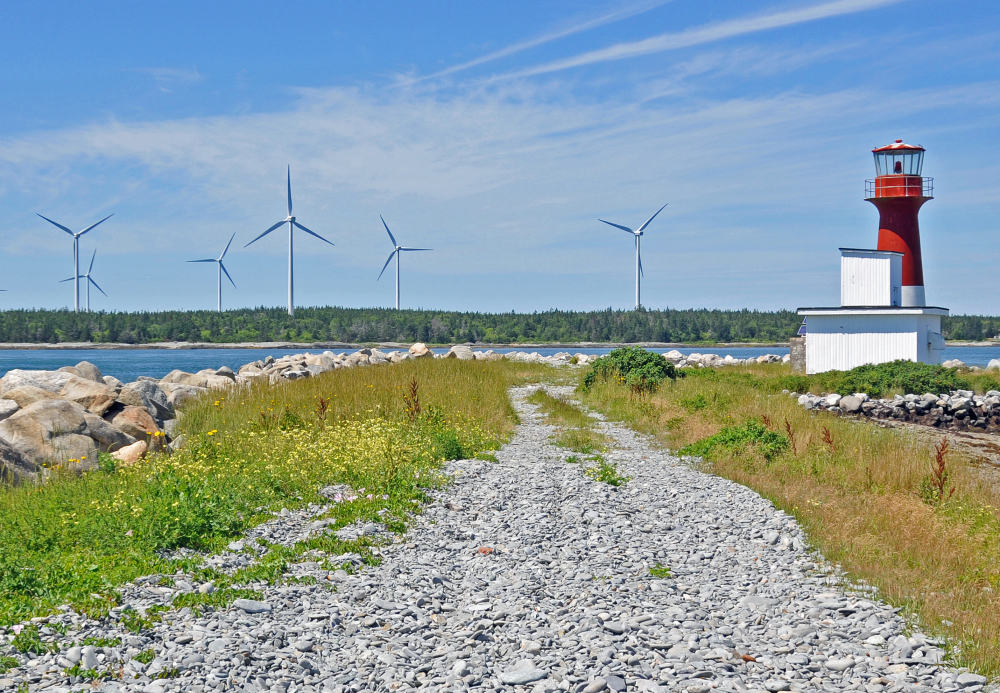CALGARY — The Pembina Institute has released a new report examining the cost of providing reliable electricity in New Brunswick and Nova Scotia using Clean Energy Portfolios (CEPs). The report, Towards a Clean Atlantic Grid: Clean energy technologies for reliable, affordable electricity generation in New Brunswick and Nova Scotia, found that as coal is phased out, the next energy resource built in these provinces should be CEPs because they are cleaner, more affordable and just as reliable as a new gas plant or small modular nuclear reactor (SMR). CEPs would also create jobs and stimulate economic development.
The findings come at a critical point for Nova Scotia and New Brunswick, as the federal government has committed to a net-zero grid by 2035, and the two provinces plan how to phase out their coal plants. The Atlantic provinces and Quebec are currently exploring expanding transmission lines to create a unified grid known as the “Atlantic Loop.” This advancement would bring access to lower cost hydroelectricity from Quebec and Newfoundland and Labrador to New Brunswick and Nova Scotia. Pembina’s analysis, using modelling by RMI, shows that incorporating hydroelectricity would lower the cost of CEPs even more.
Clean portfolios make economic sense in large part due to the dramatic decline in the costs of wind, solar, and energy storage that has happened in the last decade and is expected to continue.
Pembina’s findings in Atlantic Canada are part of a growing trend showing that CEPs are the winning choice for affordability and reliability in most jurisdictions. A 2019 study by the Pembina Institute and RMI found CEPs were the clear winner in Alberta, and analysis by RMI in the US found CEPs to be lower cost than 90% of proposed gas plants.
Quotes
“As Nova Scotia and New Brunswick move away from being powered by coal, CEPs represent an opportunity for these provinces to provide affordable, reliable energy while creating jobs and sparking economic development. Our report shows that these provinces can be climate leaders while also strengthening their economies.”
—Binnu Jeyakumar, Director of Clean Energy, Pembina Institute
"Renewable energy and energy efficiency are the best way to keep electricity affordable. We can achieve our climate goals with wind, solar and energy efficiency."
— Louise Comeau, Director of Climate Change and Energy Solutions, Conservation Council of New Brunswick
"We have the technology pathways to transition the Atlantic provinces away from fossil fuels. Now we need to use those pathways and take immediate action in order to meet our climate targets."
— Gurprasad Gurumurthy, EIT, EPt, Energy Coordinator, Renewables and Electricity, Ecology Action Centre
Quick Facts
- CEPs are a diverse, balanced mix of commercially available zero-carbon electricity supply and demand management options, including solar, wind, battery storage, energy efficiency, demand flexibility, and imported hydroelectricity.
- The cost of building new natural gas plants has plateaued, but is subject to the volatility of natural gas prices which have recently risen. The opposite is true for clean energy with the cost of wind, solar, and battery energy storage falling by 70%, 89%, and 89%, respectively, since 2009–2010.
- Clean energy resources are now cheaper than the operating costs of existing coal and nuclear generation. The costs of these resources, especially battery energy storage, are expected to continue declining as economies of scale drive down production costs.
Download a copy of Towards a Clean Atlantic Grid: Clean energy technologies for reliable, affordable electricity generation in New Brunswick and Nova Scotia.
Media Contacts
Alex Middleton
Champion Communications
403-629-2743
Esmahan Razavi
Champion Communications
403-999-0547
Background
Report: Reliable, affordable: The economic case for scaling up clean energy portfolios
Issue paper: Connecting provinces for clean electricity grids




